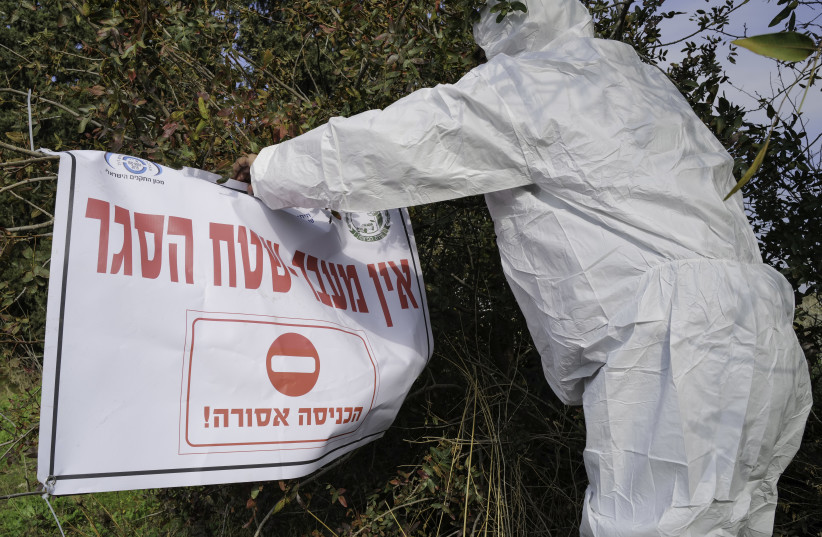The continuing avian influenza outbreak affecting the US and Europe has hit the TikTok-famous Knuckle Bump Farm located in Florida, killing 99% of the birds on the farm, according to the farm's owner, Taylor Blake.
The flu also affected a popular emu named Emmanuel who calls the farm home, with Blake continuing intensive efforts to help the bird recover throughout this week. Photos Blake published on Twitter showed her cuddling with the emu, sparking concerns that she was having too close contact with the infected animal.
"I lost Emily, Eliza and Elliot. The virus hit them extremely hard and very quickly. I tried my best to save them, but I was unsuccessful. We lost every single chicken and duck on our farm. We lost all of our geese. We lost our 2 female black swans. We lost both of our turkeys," tweeted Blake. "We lost 50+ birds in 3 days. I am still trying to wrap my head around it. We thought we were out of the woods, when Emmanuel unexpectedly went down this past Wednesday."
"As of now, the only birds left on the farm are Emmanuel and Rico. Please say a prayer for us. Please keep us in your thoughts. It is an absolute miracle that he has made it this far, and I will never give up on him. The road to a full recovery will be long, but I am dedicated," added Blake.

While avian influenza rarely infects humans, those in close contact with birds are at higher risk. Immunologists on Twitter warned that Blake's cuddly care of Emmanuel could put her at risk of infection and warned that people should keep their distance from sick or dead birds.
"DO NOT touch, handle or attempt to treat suspected sick or dead birds yourself - particularly poultry, waterfowl (ducks, geese, etc) or seabirds. These are VERY dangerous viruses that can infect people and be deadly!" tweeted virologist Tom Peacock in a tweet widely shared in replies to Blake's tweets.
Dr. Angela Rasmussen, a virologist at the Vaccine and Infectious Disease Organization, additionally stressed in a tweet that "If your emu (or any bird) has avian influenza, do not kiss it. Do not cuddle with it. Do not touch it. Bird flu is extremely dangerous to humans and other animals. And it sounds harsh but to prevent its spread, birds that get avian flu should be euthanized."
"If your emu (or any bird) has avian influenza, do not kiss it. Do not cuddle with it. Do not touch it."
Dr. Angela Rasmussen, virologist at the Vaccine and Infectious Disease Organization
Avian influenza outbreak continues to hit US and Europe
The outbreak at the farm comes as the H5N1 strain of the virus continues to spread in the US and Europe in an unrelenting outbreak that has been ongoing for over a year.
Over 47 million domesticated birds in 42 states have been affected in the US since the outbreak began, according to the United States Department of Agriculture's (USDA) Animal and Plant Health Inspection Service (APHIS). Nearly 3,000 wild birds have been found to be infected with the virus, although the real number is likely much higher as testing wild birds is difficult.
On Monday, an avian influenza prevention zone was declared across all of Great Britain, meaning that all bird keepers in the UK will be required to follow strict biosecurity measures in an effort to mitigate the outbreak.
The UK has been suffering from the largest outbreak it has ever experienced.
Last week, Finland reported a case of the H5N5 strain of avian influenza for the first time in the country in a white-tailed eagle. H5N5 has also been detected in birds in Norway in the past year.
Earlier this month, the European Food Safety Authority noted that the 2021-2022 avian influenza season was the largest such epidemic ever observed in Europe, with over 47.7 million birds culled and thousands of detections in wild birds in 37 countries.
Avian influenza has been increasingly infecting mammals, such as foxes, seals, dolphins, skunks and bears, in the past year, although experts still estimate that the risk to humans remains low. In the current outbreak, only one person in the US, one person in the UK and one person in Spain have been infected with the virus. All three exhibited light symptoms and recovered fully.
Last year, the H5N1 strain infected over one million birds in Israel.
Health officials have expressed concern that bird migrations in autumn will bring another spike in cases, with officials around the world, including in Israel, preparing for multiple possibilities.
